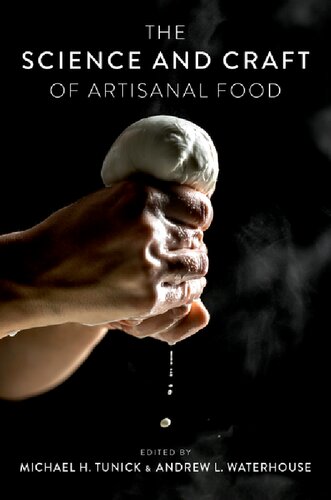

Most ebook files are in PDF format, so you can easily read them using various software such as Foxit Reader or directly on the Google Chrome browser.
Some ebook files are released by publishers in other formats such as .awz, .mobi, .epub, .fb2, etc. You may need to install specific software to read these formats on mobile/PC, such as Calibre.
Please read the tutorial at this link: https://ebookbell.com/faq
We offer FREE conversion to the popular formats you request; however, this may take some time. Therefore, right after payment, please email us, and we will try to provide the service as quickly as possible.
For some exceptional file formats or broken links (if any), please refrain from opening any disputes. Instead, email us first, and we will try to assist within a maximum of 6 hours.
EbookBell Team

0.0
0 reviewsEach chapter is written in a collaboration between scientists and artisans, comparing the production methods used to create beer, wine, chocolate, coffee, cheese, honey, olive oil, and fruits and vegetables. These expert contributors highlight the differences in practices that cause artisanal food to vary in composition, flavor, and texture from mass-produced food. Milk from particular breeds, grapes adapted to the local climate, olives and cacao from a historically important cultivar, or coffee beans from a specific climate can make all the difference. This book reveals the factors that make a difference in each product, and teaches readers how to assess the producer's messages to evaluate their authenticity.